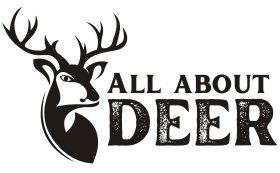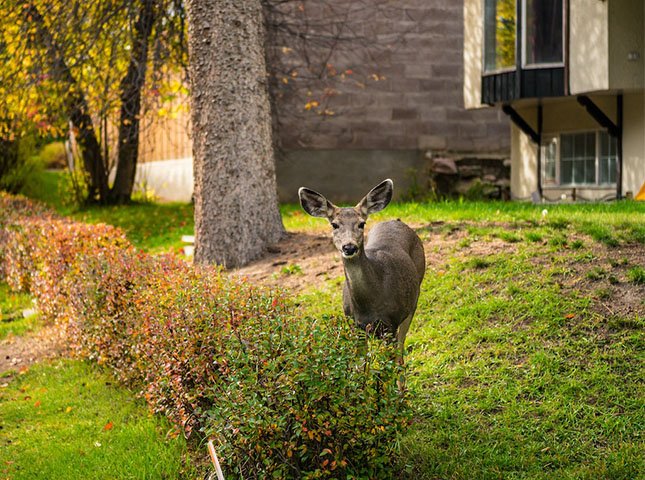If you’ve ever dreamed of having deer visit your property, you’re not alone. Watching these graceful creatures in your own backyard can be a captivating experience.
But how can you make your land more appealing to deer? In this guide, we’ll explore some effective strategies to attract deer to your property. Let’s dive right in!
Key Takeaways
- Plant Deer-Friendly Vegetation: Choose plants that deer love to eat, such as clover, alfalfa, and soybeans, to provide a natural food source.
- Create a Water Source: A reliable water supply, like a pond or small stream, will entice deer to visit your land.
- Implement Safe Hunting Practices: If you allow hunting, manage your property responsibly to ensure a sustainable deer population.
- Maintain a Quiet Environment: Reduce noise and disturbances to create a peaceful atmosphere that deer find inviting.
Plant Deer-Friendly Vegetation
Deer are herbivores, and they’re always on the lookout for tasty greens. Planting vegetation that deer love to munch on can be a surefire way to attract them. Consider these options:
- Clover: White clover and red clover are both deer favorites. They provide nutrition and are easy to establish.
- Alfalfa: This legume is rich in nutrients and highly attractive to deer, especially during the growing season.
- Soybeans: Planting soybeans can be a great way to provide a protein-rich food source for deer.
Create a Water Source
Deer need water to survive, so having a reliable water source on your property is essential. You can achieve this by:
- Installing a Pond: If space allows, a pond can be an excellent addition. Deer will visit regularly for a drink.
- Setting Up a Watering Hole: In areas with limited space, a small watering hole or trough can suffice.
- Maintaining Fresh Water: Ensure the water source remains clean and doesn’t freeze in the winter.
Implement Safe Hunting Practices
If you plan to allow hunting on your property, it’s crucial to manage it responsibly to maintain a healthy deer population. Here’s how:
- Establish Hunting Zones: Designate specific areas for hunting to minimize disturbance in other parts of your property.
- Enforce Bag Limits: Set and enforce reasonable bag limits to prevent overhunting.
- Provide Safety Education: Ensure all hunters on your land are educated about safety and ethical hunting practices.
Maintain a Quiet Environment
Deer are naturally skittish creatures, so it’s essential to keep noise and disturbances to a minimum. Here are some tips:
- Limit Human Activity: Reduce unnecessary human activity during peak deer times, such as dawn and dusk.
- Control Predators: Manage predator populations, like coyotes, to create a safer environment for deer.
- Use Natural Barriers: Plant dense vegetation or erect fencing to create natural barriers and reduce visibility from nearby roads or buildings.
Supplemental Feeding
While planting deer-friendly vegetation is crucial, you can further entice deer by providing supplemental food sources. Consider:
- Deer Feeders: Automatic feeders can dispense corn or specially formulated deer feed to keep deer coming back.
- Mineral Supplements: Deer benefit from mineral supplements, especially during the growing season.
Proper Habitat Management
Creating the ideal deer habitat is essential for attracting and keeping deer on your property. Here’s what you can do:
- Timber Management: Practice responsible timber harvesting to maintain a diverse and healthy forest habitat.
- Preserve Bedding Areas: Protect and preserve bedding areas where deer rest during the day.
- Control Invasive Species: Remove invasive plants that can harm the natural habitat.
Trail Cameras
Investing in trail cameras can provide valuable insights into deer activity on your property. These cameras capture photos or videos of deer and other wildlife, helping you monitor their habits.
Scents and Lures
Using deer scents and lures can be an effective way to attract deer, especially during the hunting season. These products mimic the scents of deer in estrus or during feeding.
Frequently Asked Questions (FAQs)
1. Can I attract deer to a small property?
Absolutely! Even if you have a small property, you can still attract deer by focusing on their essential needs—food, water, and cover. Planting deer-friendly vegetation and providing a water source can work wonders, even on compact lands.
2. Is it legal to feed deer on my property?
Laws regarding deer feeding vary by location, so it’s crucial to check your local regulations. Some areas may prohibit or restrict feeding deer due to concerns about disease transmission. Always follow local laws and guidelines.
3. How can I prevent deer from damaging my garden?
While you want to attract deer, you may not want them nibbling on your garden. Use fencing to protect your garden, and consider planting deer-resistant plants near your home.
4. Do deer attractants really work?
Deer attractants like scents and lures can be effective, but their success can vary depending on several factors, including the deer population in your area, the timing of use, and local hunting pressure. It’s worth trying them out to see if they work on your property.
Attracting deer to your property requires careful planning and consideration of their basic needs. By implementing these strategies and being mindful of local regulations, you can create an environment that welcomes these beautiful creatures to your land.


